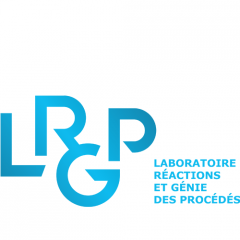Les recherches menées au LRGP bénéficient d’un appui technique et administratif grâce à 04 services et de 02 équipes de coordination analytique :
- Mechanical workshop
- Networks, Administration, Computing, Programming (RAID)
- Administration, Finances and Communication (SAFIC)
- Instrumentation and Electronics (SIEL)
- Coordination team of competences and material in chemical analysis (ECCMA)
- Coordination team in experimental techniques (ECCME)
Mechanical workshop
- The personnel of the mechanical workshop groups technicians specialised in welding, soldering, milling machines, turning, and metal fabrication. The workshop produces original, high-quality sophisticated experimental plants.
- The workshop uses a CAD programme. It plays an essential role in the preparation and realisation of all experimental plants of the laboratory. The workshop plays an essential part in the experimental research of the laboratory. Its work is based on the presence of highly qualified technicians and of up to date equipment:
- CAD programme Autodesk Inventor, cost evaluation,
- Conventional and numerical machining tools for the production of complex objects (among others a UGV milling machine for micro-objects) in all kinds of materials (copper, aluminium, dsteel, stainless steel, polymers…),
- Gas Tungsten Arc welding plant,
- Production of complex plastic objects by gluing.
RAID
Networks, Administration, Computing, Programming
This department is in charge of the management of the computing systems of the laboratory. The five members of this department are network administrators and programmers.
The tasks of this department are threefold:
The optimal use of the computing system of the laboratory:
-
- Network maintenance (in interaction with the Computing Resources of the University of Lorraine),
- Administration of the servers and all the computing system of the laboratory (PC, laptops, printers),
- Setup and maintenance of the intranet of LRGP,
- Programming help.
Management of the computing resources of the laboratory:
-
- Hardware (installation and maintenance; cluster - 38 processors/servers for calculation),
- Software (installation, maintenance, licenses, ...),
Development and maintenance of scientific programmes. Improving and developing programmes issued from research teams of the lab.
SAFIC
Administration, Finances and Communication
The main tasks of this department are the following
1. Administration :
-
-
- Management of human resources (reception of incomers, careers of the technical staff and of researchers, continuous education),
- Communication (newsletter of the lab, register of photographs of the members of the lab, reports, miscellaneous documents...),
- Outer Relations (organisation of congresses, seminaries, missions),
- Office of secretary of the direction of the lab,
- Reprography.
-
- 2. Office of Scientific secretary for the research groups.
- 3. Financial administration: real time computerised follow up of the funds of the laboratory
SIEL
Instrumentation and Electronics
The technicians of this service work in tight collaboration with the researchers and the mechanical workshop, in order to test the feasibility of the proposed instrumentation before the actual design.
The main know-how available is presented in the following:
Programming using LabVIEW:
This fairly recent (20 years) graphical programme allows to create « virtual instruments » driven by a PC. It is ideally suited to the requirements of the research of our lab.
Using this programming language, it is possible to write rapidly a programme, either following a detailed list of requirements, or directly in collaboration with the researcher.
This programming language is being continuously updated, and it is now possible to use the possibilities of recent PCs (multi-core, parallelization).
Microcontroller technique:
A microcontroller is a small computer on a single metal-oxide-semiconductor (MOS) integrated circuit chip. A microcontroller contains one or more CPUs (processor cores) along with memory and programmable input/output peripherals. Program memory is also often included on chip, as well as a small amount of RAM.
Microcontrollers are often used in embedded applications. Using them, all kinds of automatisms, control of engines are possible, while allowing later changes.
3D printing:
Using 3D printing, it is possible to release rapidly prototypes to integrate in our systems various sensors and actuators.
ECCMA
Coordination team of competences and material in chemical analysis
This team groups technicians of the research teams, but also academics active in the field of chemical analysis. They are in charge of equipment, teach the users to use correctly the analytical tools and to design reliable analysis protocols; in some cases, they make themselves analytical measurements.
The range of analytical techniques available in the laboratory is quite extended:
-
-
- Elemental analysis,
- Physical analysis,
- Thermal analysis,
- Imaging,
- Spectroscopy,
- Chromatography.
-
It is thus possible to determine qualitatively and/or quantitatively the products issued from chemical reactions and to describe and control the processes developed.
ECCME
Coordination team in experimental techniques
The aim of this team is to improve coordination between the technicians of the technical departments and of the research axes while designing and putting up new experimental plants. Another aim is to organise project oriented teams including research fellow, technicians and PhD students, so that the latter in particular learn to cooperate and improve their knowledge in technical matters. The fabrication of complex pieces of equipment is done by the technicians.
